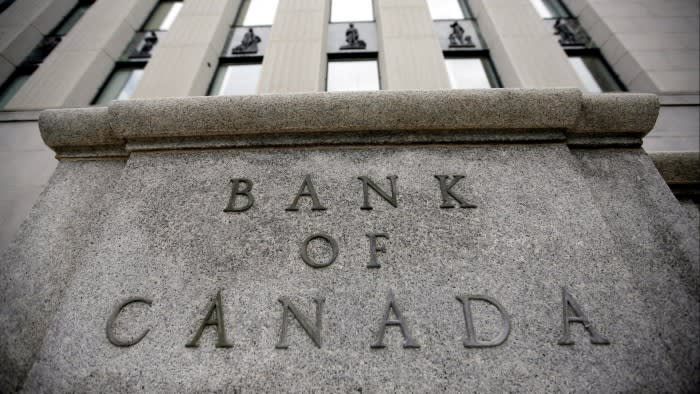Unlock the Editor’s Digest for free
Roula Khalaf, Editor of the FT, selects her favourite stories in this weekly newsletter.
The Bank of Canada has cut interest rates by half a percentage point to 3.75 per cent, in a bid to spur consumer spending and boost growth.
The central bank’s move comes after Canada’s inflation fell below its 2 per cent goal, hitting 1.6 per cent in the year to September.
The cut, which was widely expected, was the fourth in a row by the G7 country’s central bank. However, earlier cuts had been of a smaller, quarter-point, margin.
“If the economy evolves broadly in line with our latest forecast, we expect to reduce the policy rate further,” the central bank said in a statement.
Jim Thorne, chief market strategist at Wellington-Altus Private Wealth, said lower borrowing costs would not fix the Canadian economy’s broader problems, such as low productivity and lacklustre growth.
“Rate cuts are not a magic bullet,” he said. “Eighty per cent of GDP growth in the second quarter can be attributed to government spending.”
Nathan Janzen, economist at Royal Bank of Canada, agreed that the economy’s structural challenges remained, despite lower borrowing costs.
“The GDP per-capita rate is in its sixth quarter of decline, unemployment is up, so the economy is now softer, there is even [a] risk inflation [runs] well below the 2 per cent target rate,” Janzen said.
This month, Statistics Canada reported that September’s unemployment rate was 6.5 per cent, a slight dip from August but still almost 2 percentage points higher than the record low of 4.8 per cent set in July 2022.
The IMF said on Tuesday that Canada’s economy would grow 1.3 per cent this year before expanding 2.4 per cent in 2025.
The latest Canadian cut comes after the European Central Bank lowered its policy rate by a quarter-point last week. The US Federal Reserve last month reduced its benchmark target range by half a percentage point, its first cut in more than four years.
Geoff Phipps, trading strategist and portfolio manager at Picton Mahoney Asset Management, said the Bank of Canada had, up until now, not been accommodative enough.
“The Canadian economy appears to be struggling under overly restrictive monetary policy with a large mortgage renewal wall next year,” he said.
Prime Minister Justin Trudeau has applauded the central bank’s recent rate cuts as a sign Canada’s economy is back on track.
In September, Trudeau also announced significant reforms to the country’s migration policy, including its foreign workers programme that has been blamed for soaring housing costs, pressure on the healthcare system and rising youth unemployment.



